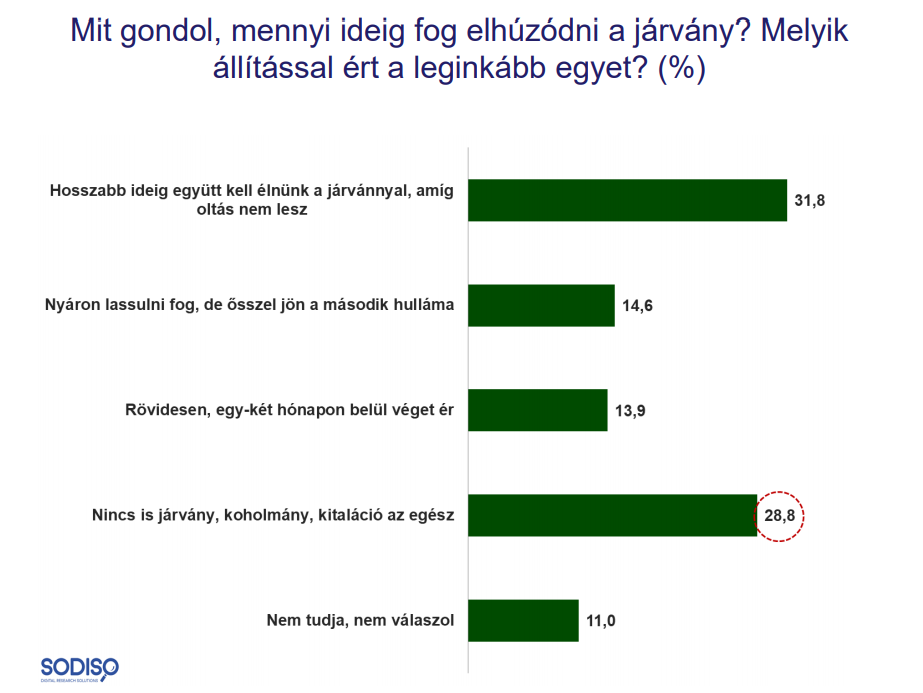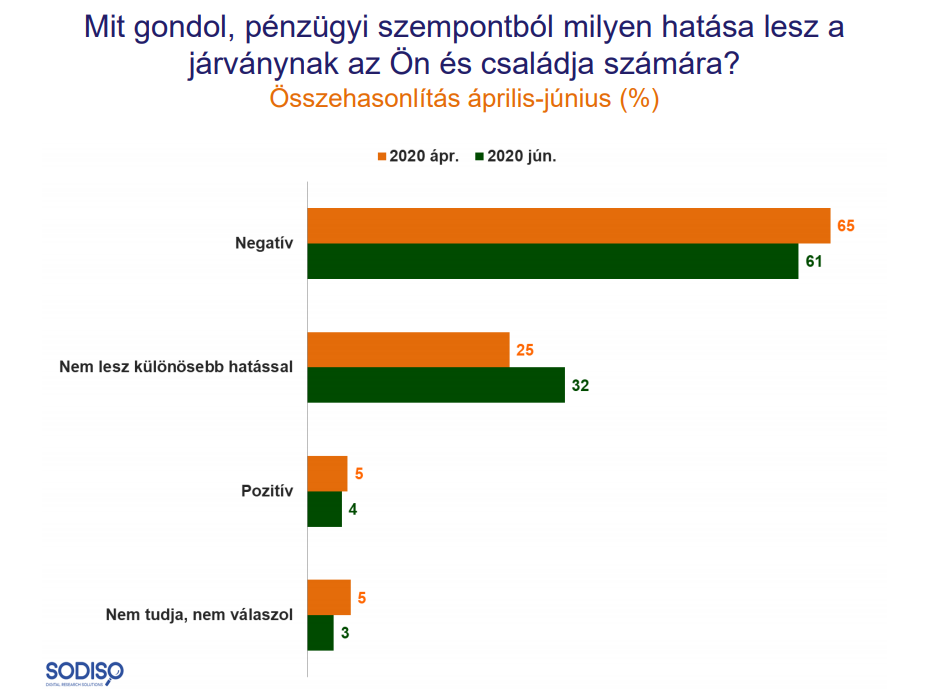Due to the relatively low health impact and negative economic effects of the pandemic, insecurity, mistrust, disappointment and frustration are running very high among Hungarians living in Transylvania, a study by SoDiSo Research shows. According to the polling group’s survey, public morale is also very pessimistic and interethnic relations, highly problematic.
The SoDiSo Research polling group conducted the study between June 5-17 (the last two weeks of the state of alert) among the adult Hungarian population in Transylvania. The survey focused on the general perception of the epidemic, attitudes toward the safety measures adopted by the government, public morale and interethnic relations; the results were published at the end of June. Some of them were compared to the results of the Coronavirus in Transylvania survey, conducted by SoDiSo and Erdélystat.ro in April, which focused on similar topics. (Our articles about the survey: first, second, third, fourth and fifth part).
The main conclusion of the research is that “due to the relatively low health impact and negative economic effects of the epidemic, insecurity, mistrust, disappointment and frustration are very high among Hungarians in Transylvania.” According to the study, economic fears outweigh health concerns (due to the paradox of effective measures), while the general attitudes toward the pandemic are very diverse: Some believe it is a health risk, others view it as an economic risk; then, there is a large group who think that the virus is a fabrication. Furthermore, Hungarians are not satisfied with the government’s measures, neither health nor economic ones.
Public morale is also very pessimistic; Hungarians living in Transylvania have not been this pessimistic in the last ten years.
Very few Hungarians have even been affected by the pandemic: only 3 percent of respondents said that they, their family members or close acquaintances were infected with the coronavirus. The fear of infection also decreased slightly since April, with the proportion of those who thought they were likely to catch the disease falling from 22 to 16 percent. The majority (76 percent) do not consider it likely they will become infected.
The respondents are not very optimistic about the recovery: 32 percent said that we need to live with the virus for a longer time, until a vaccine is available, while another 14.6 percent are waiting for a second wave. But according to almost one-third of the respondents (28.8 percent), the virus is a fabrication.

The negative economic impacts of the virus are also easing: 80 percent of those who were active in the labor market in February were working in May, which is a significant improvement if we compare it to the data from April when only 63 percent were working. This means that in May, only 10 percent of the respondents were on forced leave, or unemployed, significantly less than in April, when it reached 22.9 percent. However, the proportion of those who think the virus will have a negative impact on themselves and their families is still very high, reaching 61 percent (65 percent in April).

According to the study, the majority (404. percent) of those who were working abroad (respondents, family members, close relatives, friends of respondents) but returned to Romania due the pandemic are still in the country, but they will go back to work abroad as soon as possible. Another 17 percent have already left the country, while 21.5 percent are still hesitant. Only 13.4 percent have decided to stay in Romania.
The vast majority of the respondents are not satisfied with the government’s epidemiological measures: 71 percent are not satisfied with the health measures, while 82 percent are not happy with the economic ones. According to the researchers, this is very interesting because at the beginning of April, the majority of the respondents (68 percent) agreed with the measures adopted by the government, while 81 percent agreed with the movement restrictions.
“The radical change in public opinion is probably due to the combined effects of several factors. On the one hand, the actual health impact of the virus remained low in Romania (like in other Eastern European countries). On the other hand, the negative economic consequences have outweighed the relatively mild health effects.
As the threat has passed, the acceptance of the lockdown and movement restrictions decreased, and the frustration regarding
these measures increased significantly.
The measures of the government today
seem exaggerated, fictitious. This is nothing more than the paradox of effective precautions: looking back, the successful restrictions seem unnecessary,”
the researchers wrote in the report. They also mention that the government’s actions and communications were chaotic and controversial, and as the epidemiological situation got better, renewed political battles reinforced this.
Public morale is very pessimistic, with Hungarians in Transylvania probably not this pessimistic for a decade, the survey shows. Only 4 percent of the respondents think Romania is heading in the right direction, and 48.6 are not satisfied with their living conditions. The majority of the respondents (44.4 percent) said that their living conditions won’t change in a year, but 30.3 percent said they will worsen. Only 12 percent think that their life will get better.

Almost half of the respondents (46.2 percent) believe corruption is Romania’s biggest problem, followed by economic (inflation, unemployment, pensions), health and education problems.
The majority of the respondents (59.5 percent) view Romanian-Hungarian interethnic relations as problematic, while another 20 percent described them as being mutually disinterested. Only 13.2 percent of the respondents said that Romanian-Hungarian relations can be considered cooperative.
According to the polling group, the online questionnaire was completed by 3,068 people. The researches stressed that the research is not representative, but “the results can be considered a good estimate for the Hungarian population aged 18-80 with at least a primary level of education.”
Title image: According to the study, the majority of the respondents find the restrictive measures unnecessary. Photo: Egészségkalauz.ro